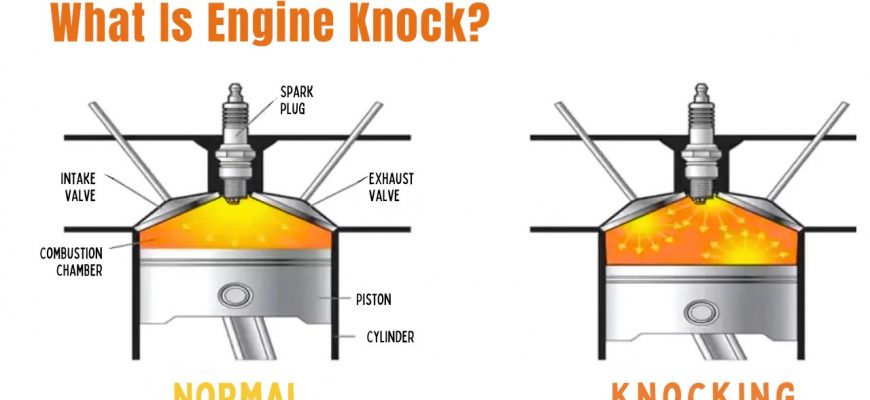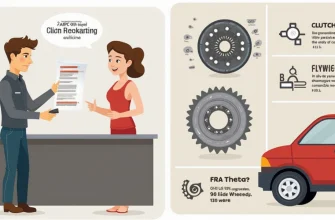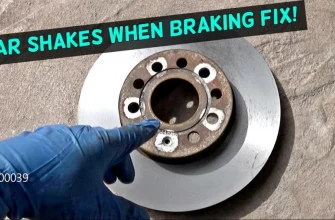Engine knocking, often referred to as “pinging,” is a term that reverberates through the automotive lexicon, sparking concern among car owners and enthusiasts alike. This phenomenon can indicate underlying issues that, if left unaddressed, may lead to significant engine damage. In this article, we will delve deep into the causes of engine knocking, how to identify it, and what steps you can take to mitigate its effects.
What is Engine Knocking?
Engine knocking occurs when fuel in the engine’s cylinders ignites prematurely or unevenly. This results in a knocking or pinging noise, which can be alarming. Typically, the combustion process in an engine occurs in a controlled manner, where the air-fuel mixture is ignited by a spark plug at precisely the right moment. When this process is disrupted, it can lead to knocking, which can be detrimental to the engine’s health.
Common Causes of Engine Knocking
- Low-Quality Fuel: One of the primary culprits behind engine knocking is the use of low-octane fuel. High-performance engines require higher-octane fuel to prevent knocking. Using a fuel with a lower octane rating than recommended can cause premature ignition.
- Incorrect Ignition Timing: The timing of the ignition spark in relation to the piston’s position is crucial. If the ignition timing is too advanced, it can lead to premature combustion, resulting in knocking. This is often a result of improper tuning or a malfunctioning timing mechanism.
- Carbon Buildup: Over time, carbon deposits can accumulate in the combustion chamber, altering the volume and shape of the chamber. This can lead to increased compression and premature ignition, resulting in knocking sounds.
- Lean Air-Fuel Mixture: An air-fuel mixture that is too lean (meaning there is too much air and not enough fuel) can cause higher combustion temperatures. This can lead to knocking due to the higher likelihood of the fuel igniting prematurely.
- Worn Engine Components: Components such as pistons, bearings, and cylinder walls can wear over time, affecting the engine’s compression and leading to knocking. If the engine has significant wear, it may not operate as intended, resulting in knocking sounds.
- Overheating: An overheating engine can lead to increased temperatures within the combustion chamber. This can cause the fuel to ignite too early, resulting in knocking. Overheating can stem from various issues, including low coolant levels or a malfunctioning thermostat.
How to Identify Engine Knocking
Identifying engine knocking is crucial for timely intervention. Car owners should listen for a distinct pinging or knocking sound, which may increase with acceleration or load. Additionally, pay attention to the following signs:
- Decreased engine performance
- Check Engine light activation
- Unusual vibrations from the engine
- Increased fuel consumption
Mitigating Engine Knocking
Addressing engine knocking involves a combination of preventative measures and corrective actions:
- Use Quality Fuel: Always opt for high-octane fuel that meets your vehicle’s specifications. This can help prevent premature combustion.
- Regular Maintenance: Keep up with regular engine maintenance, including spark plug replacements, timing adjustments, and fuel system cleanings to prevent carbon buildup.
- Engine Tune-Ups: Consider having a professional tune your engine. This includes checking and adjusting the ignition timing and air-fuel mixture.
- Cooling System Checks: Regularly check your vehicle’s cooling system to ensure it operates efficiently and prevents overheating.
Engine knocking is a serious concern that warrants immediate attention. By understanding its causes and implementing preventative measures, car owners can protect their vehicles from potential damage. Always consult a qualified mechanic if you suspect your engine is knocking, as they can diagnose the issue and recommend appropriate solutions. Remember, an ounce of prevention is worth a pound of cure!
Further Insights into Engine Knocking: Prevention and Repair
While understanding the causes of engine knocking is crucial, knowing how to address and prevent it is equally important for every vehicle owner. Ignoring the symptoms can lead to severe consequences, including costly repairs and diminished vehicle performance. Below, we explore additional insights into prevention and repair strategies that can keep your engine running smoothly.
Preventative Measures to Avoid Engine Knocking
Taking proactive steps can significantly reduce the chances of engine knocking. Here are some effective preventative measures:
- Regular Engine Checks: Schedule regular inspections with a trusted mechanic. Routine checks can catch potential issues early, ensuring your engine components are functioning correctly and preventing conditions that lead to knocking.
- Fuel Additives: Consider using fuel additives designed to clean the fuel system and reduce carbon buildup. These additives can enhance combustion efficiency and lower the risk of knocking.
- Proper Break-In Procedures: For new engines, adhere to the manufacturer’s break-in procedures. This process is vital for ensuring that engine components wear evenly and reduces the likelihood of premature ignition issues.
- Monitor Engine Temperature: Keep an eye on your engine’s temperature gauge. If it consistently runs hot, investigate cooling system issues immediately to prevent overheating and knocking.
Repairing Engine Knocking
If you discover that your vehicle is experiencing knocking, timely repair is essential. Here are common repair strategies:
- Fuel System Cleaning: A professional cleaning of your fuel system can eliminate carbon deposits and improve the air-fuel mixture, potentially resolving knocking issues.
- Ignition Timing Adjustment: If the ignition timing is found to be incorrect, a qualified mechanic can adjust it to the optimal setting, reducing or eliminating knocking.
- Replacing Worn Components: If wear and tear on engine parts are identified, replacing these components may be necessary. This could include pistons, bearings, or spark plugs, which are critical for maintaining proper engine function.
- ECU Remapping: For modern vehicles, reprogramming the Engine Control Unit (ECU) can help optimize performance and reduce knocking by adjusting fuel delivery and ignition timing based on sensor data.
When to Seek Professional Help
It’s imperative to know when to consult a professional mechanic. If you hear knocking sounds consistently or notice a decline in engine performance, do not hesitate to seek expert help. Ignoring the problem can lead to more severe damage, potentially resulting in engine failure.
Engine knocking is a complex issue that can stem from various causes, each requiring attention to detail and timely intervention. By understanding the mechanics behind knocking and taking preventative measures, vehicle owners can protect their investment and enjoy a smoother, more reliable ride. Whether it’s through regular maintenance, timely repairs, or quality fuel choices, your efforts can make a significant difference in the longevity and performance of your engine. Remember, an informed driver is an empowered driver—stay vigilant and keep your engine humming!










I really enjoyed this article! It’s well-written and easy to understand, even for someone who isn’t a mechanic. The tips on preventing engine knocking are invaluable!
This article provides a clear and concise explanation of engine knocking. I appreciate how it breaks down the causes and offers practical advice for car owners. Great read!
Excellent insights on engine knocking! The section about low-quality fuel was particularly eye-opening for me. I’ll definitely be more cautious about the fuel I use moving forward.
I found this article incredibly informative! Understanding engine knocking has helped me take better care of my car. Highly recommend it to anyone interested in automotive maintenance!
A fantastic resource for both car enthusiasts and everyday drivers. The detailed explanations of ignition timing and carbon buildup were very helpful. Thank you for sharing this knowledge!